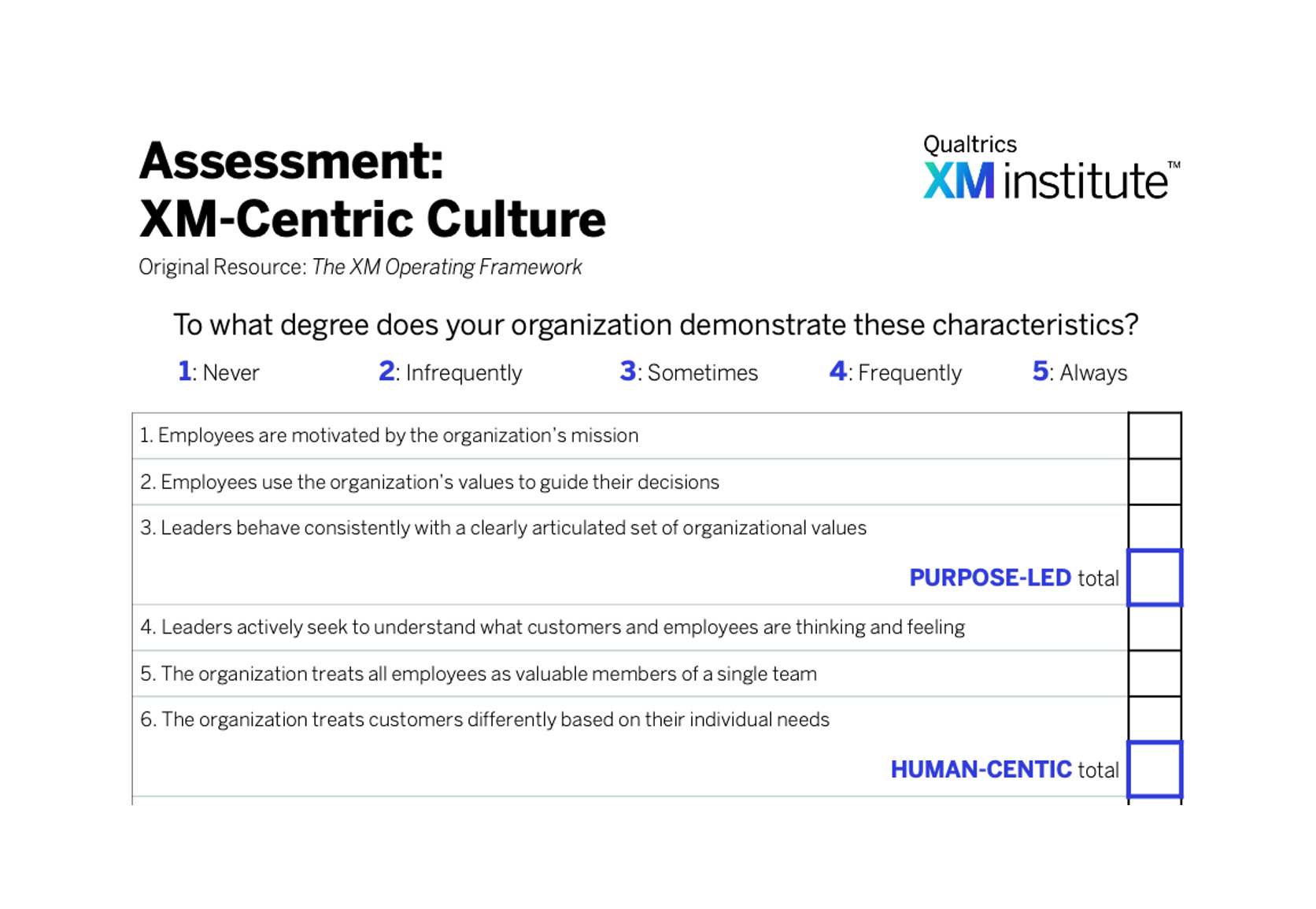Note from Bruce Temkin: This is the first (of many) posts that will be written by thought leaders besides me. I’m thrilled to have Ben Granger join our Qualtrics XM Institute team and contribute to this blog.
Today, I am excited to announce that I have officially joined the Qualtrics XM Institute! I am joining a fantastic team of XM researchers and visionaries.
For the last 15+ years, I have been deeply immersed inside the world of HR and recently, within the growing subfield of employee experience (EX). And this space is hotter than it’s ever been! Which begs the question (which I have asked myself many times) – why the change?
As Qualtrics, and now, SAP, introduces the category of experience management (XM) to the business world, I have viewed HR and EX through a different lens. One that makes EX look surprisingly similar to the fields of customer experience (CX) and traditional market research.
Over the last 4 and half years, I have worked with hundreds of HR leaders all over the globe. And among them, I recognize an undeniable appetite to learn from their peers doing similar work with their organizations’ customers and future customers. For me personally, some of my greatest learnings have come from non-HR professionals – exceptional researchers like Carol Haney and Bruce Temkin and methodologists like Dave Vanette and Steve Snell have greatly influenced the way I consult my clients…about EX!
Perhaps it is not surprising, then, that some of the most innovative and intriguing EX programs that I have come across are led by former CX program and marketing leaders.
The alignment between EX and XM became readily apparent to me when Bruce Temkin and I sat down for an interview a few months ago. As is always the case when Bruce and I chat, we got lost (in a good way) talking about “big” ideas and possibilities for XM.
In fact, as I learned more about the discipline of XM and it’s foundational frameworks and principles, I saw in them, solutions (answers) to many of the problems (questions) that I and those HR leaders that I’d built relationships with were trying to solve.
In some ways, I felt that HR and the related fields of IO Psychology and EX were already deeply immersed in certain XM activities. For example, IO Psychology has built an incredible body of academic research to support many of the EX measures that organizations leverage today.
But, I also felt that HR/ EX was well behind in other areas. For example, measuring employee experiences in seamless and conversational ways, designing processes that are consumer-grade, translating raw data into consumable and actionable insights. I sometimes summarize these (over simplistically) as a lack of creativity. There is so much left for us to learn from XM!
While my move to the XM Institute is partially self-serving (I want to expand my knowledge and expertise), I suspect that my personal transition from HR to EX to XM is simply a microcosm of a major industry trend. A trend of organizations aligning their XM principles and practices and building bridges across all of the experiences that they must manage and master (customer, employee, brand, product, etc.).
And for those not totally convinced that this trend is real, ask yourself these simple questions.:
- Are employees and customers going to be more or less demanding of organizations in the future?
- Will employee and customer acquisition and retention become more or less challenging in the future?
- Will alignment across the core experiences (e.g., employee, customer, brand) become more or less important for organizations in the future?
Likely everyone who reads this will answer “more” to every question. I have yet to find anyone who has not.
I rest my case.
Throughout my career, my passion has been around building and improving the experiences of employees at work and I don’t see that changing anytime soon. But I am extremely excited to be joining an exceptional group of researchers and thought leaders and to help bring XM to the business world!





